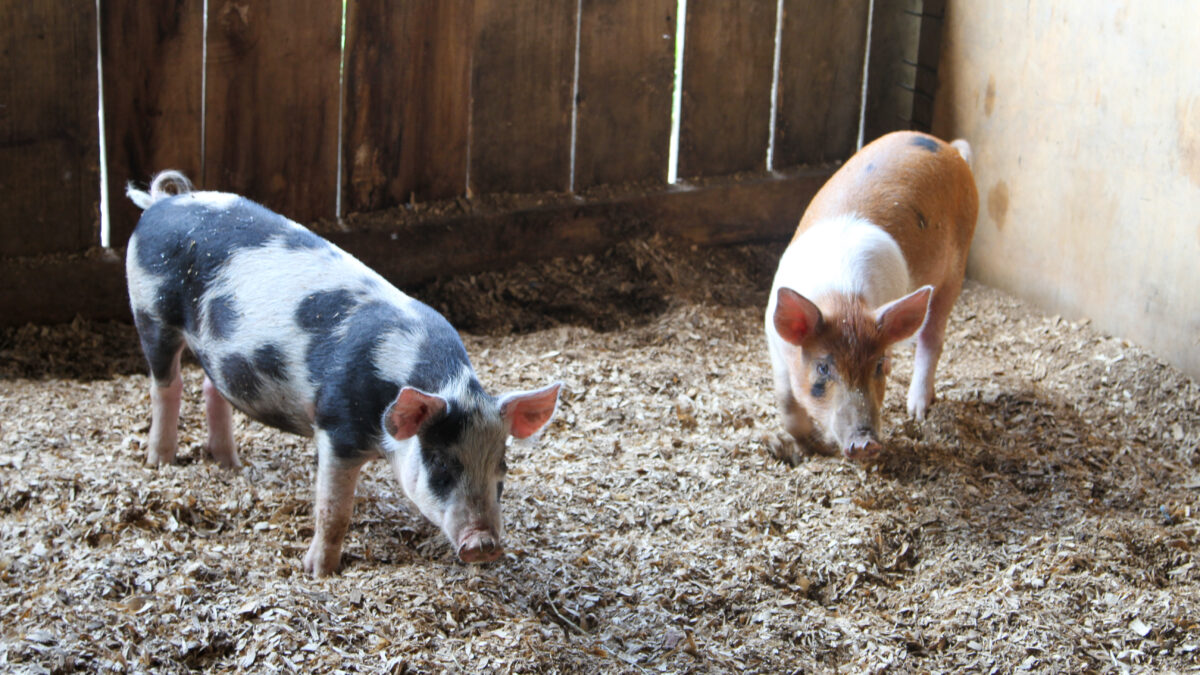Better Science Won’t Burn Livelihoods
Guest Author
Special Contributor to FB.org

photo credit: Alabama Farmers Federation, Used with Permission
Guest Author
Special Contributor to FB.org
By Thomas Grumbly
It’s the midpoint of the avian flu season, but poultry farmers in the U.S. are starting to sigh with relief. After worrisome strains of flu were found in chicken flocks in Tennessee, Alabama, Georgia and Kentucky—the heart of our country’s “broiler belt”—no more infected birds have been found and warnings are beginning to lift.
The last large-scale outbreak of avian flu occurred in 2015. Efforts to control an avian flu outbreak in the U.S. included the culling of 48 million birds, flock by flock, when just one bird or two on a farm became ill. Most of the carcasses had to be burned to facilitate disposal. While that outbreak fortunately did not sicken any people, the economic impact totaled $1.2 billion.
A growing number of wheat farmers are starting to worry instead. Wheat blast, a hard-to-control fungus that has decimated crops in South America for the past few decades, is now emerging in South Asia. Earlier this year, farmers in eastern India and Bangladesh burned tens of thousands of hectares of wheat plantings after the crops became infected. The fungus has not yet impacted crops here in the U.S. But for those studying the fungus, the question is not if it will strike, but when.
Scientists have yet to figure out how to breed wheat varieties resistant to this fungus, and they have yet to figure out how to detect the fungus before it shrivels the grain. As wheat blast is spread by seeds and crop residue, the only option left is to burn the fields where the fungus is suspected.
Everyone—farmers and scientists alike—understands that burning up livestock and farmland is not a long-term solution to the diseases afflicting agriculture. But for many problems, long-term solutions have not been found. What’s worse is that the search for solutions has ceased to be a priority for our government.
In 1940, almost 40 percent of the federal government’s research budget was devoted to the agricultural sciences. By the early 1970s, the percentage was not even 6.5 percent. In 2014, it was 3.4 percent.
You can see the funding issues quite clearly with the Agriculture Department’s flagship program for competitively awarded grants, the Agriculture and Food Research Initiative. AFRI was created by Congress almost 10 years ago and its budget was authorized at $700 million. In the midst of talk about budget cuts and limited spending, Congress agreed to increase the program’s scope by $25 million—yet its current funding still sits at only $375 million.
With such limited funding, AFRI’s program administrators have tried to spread its focus broadly, looking to touch as many fields as possible. Such a broad focus makes it hard for narrow fields of research to earn consistent funding.
Barbara Valent of Kansas State University, for example, is one of the leading researchers on the blast fungus around the world. She has received two AFRI grants that have helped her understand how rice varieties resist the disease, but she and others in her field are still determining the key to blast resistance in wheat. Even though her current AFRI grant expires at the end of 2017, she has been unable to apply for another grant since the program has not focused recently on a field of inquiry that includes the blast fungus.
In many ways, the agricultural sciences suffer from a disease of lack of the public imagination. People do not generally dream of feeding the world in the same way that we dream of curing cancer or putting an astronaut on Mars. But even the most outrageous dreamer cannot picture an end to world hunger when farmers are left with no other way to stop mysterious pathogens than by burning down their farms.
It is time to put out these fires and fight off diseases with cold hard science. With the federal budget season upon us, funding agricultural research has got to be a priority for this year’s budget as well as for the next farm bill. Our dreams for the future—like our food supply—have to stop going up in smoke.
Thomas Grumbly
Thomas Grumbly serves as president of Supporters of Agricultural Research Foundation. He has held senior policy roles in the Office of Management and Budget, the Agriculture Department and the Food and Drug Administration.
Top Issues
VIEW ALL